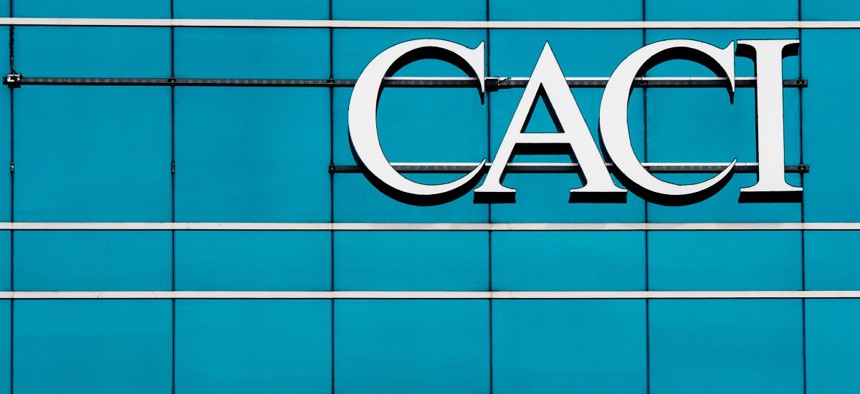CACI's international push is a slow and steady race

The CACI International is seen on a building in Annapolis Junction, Maryland on March 11, 2019 JIM WATSON/AFP via Getty Images.
One delivery to the U.S.' neighbors up north is on contract and as CACI's chief executive told Wall Street, more activity like that drives the addressable market for its technology.
Global conflicts and other events of turbulence certainly help drive how the U.S. government works with its allies and what customers in both camps need, including technology.
International regions are "where the largest threat is," CACI International's chief executive John Mengucci said in a Thursday earnings call with investors.
During his opening remarks on the fiscal third quarter call, Mengucci said the company continues to be at work in "building out our ability to deliver our technology" to NATO countries and other allies such as those in Five Eyes.
Five Eyes is the intelligence alliance that comprises the U.S., Australia, Canada, New Zealand and the U.K.
Mengucci told analysts that during the quarter, CACI received its first order from Canada to deliver portable counter-unmanned aerial systems technology.
The Reston, Virginia-headquartered company also operates its CACI UK subsidiary as a way to have a foothold there and eventually other European countries in NATO. CACI UK has also made some acquisitions of its own, more recently of an unnamed digital transformation business whose clients are in government and commercial markets.
Mengucci has previously told investors, and us after he started as CEO in 2019, that growth into international markets would be more of a slow build for CACI.
"We're probably in the second or third inning there," Mengucci said on the Thursday call. "We're going to continue to expand our reach of our software-based technology into the international market, it allows us to drive our addressable market for that technology."
Revenue on contracts with international customers totaled $168.4 million for the nine-month period ended March 31. That makes up for approximately 3% of total sales during the prior three completed fiscal quarters, according to CACI's third quarter 10-Q regulatory filing.
It is important to note that international is part of "commercial and other" revenue in the filing, which suggests the number combines both government and commercial contracts outside the U.S.
For CACI, its international strategy will primarily center around the company's technology portfolio that leans on product sales and deliveries to drive growth.
But the other side of CACI's business that concentrates on expertise and other more service-centric work is not out of the equation entirely, according to Mengucci.
"If you look at our expertise that focuses on soft support, on folks out in the field on the long side of the wire in a lot of these really dangerous countries, we do get a lot of expertise information that then tells us who we should go and target," Mengucci said. "That is the beauty and the strength of delivering expertise and tech, and those two parts of our business supporting each other."
Also during CACI's fiscal third quarter ended March 31, the company acquired the digital application modernization provider Quadrint in a move to add more intelligence community relationships and past performance.
Revenue in the quarter of $1.9 billion was 11.1% higher than the prior year period with an organic growth rate of roughly 10%, while profit of $218 million showed a 13.6% year-over-year increase in EBITDA (earnings before interest, taxes, depreciation and amortization).
CACI lifted its full-year revenue outlook to between $7.5 billion and $7.6 billion. The company also expects its EBITDA margin to end up at 10.7%.


